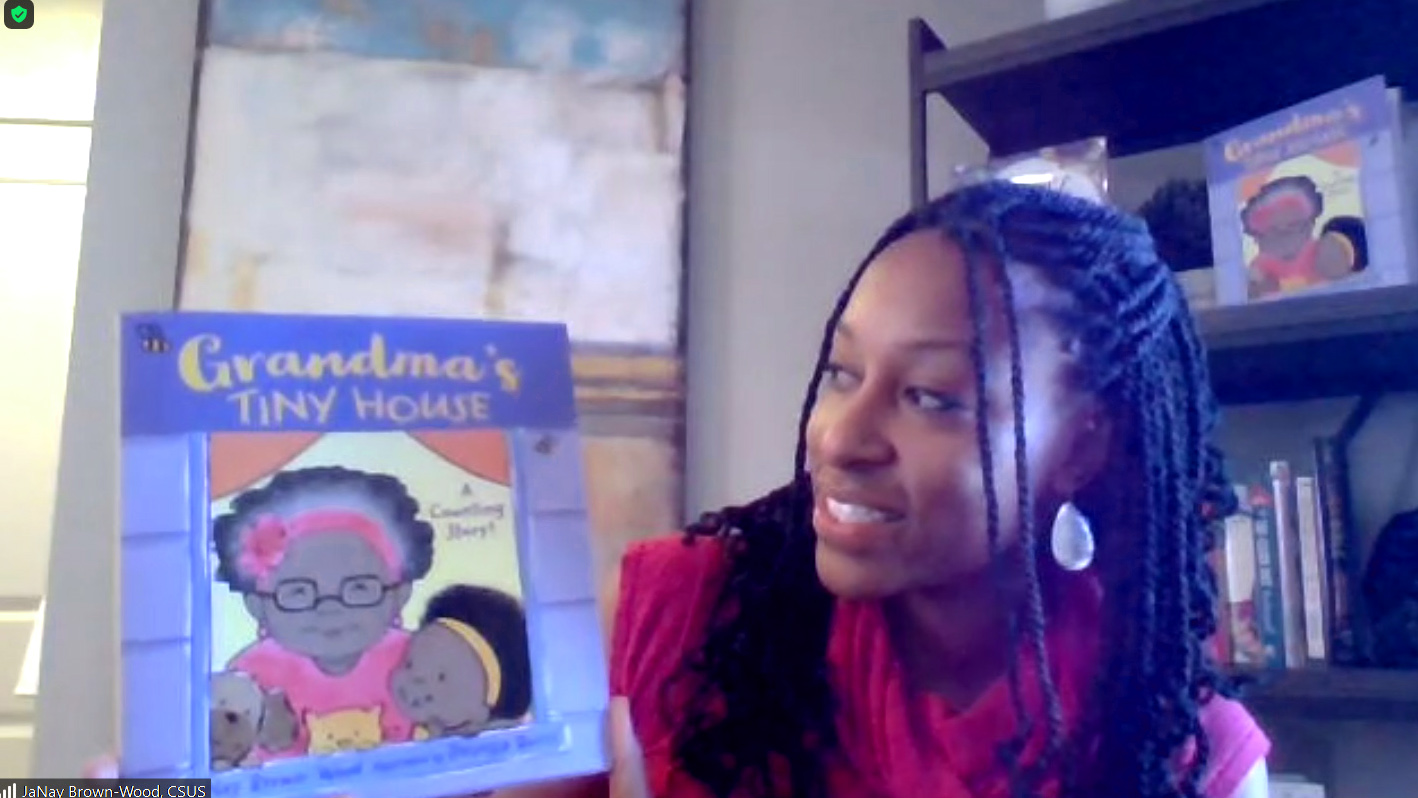Story Content
'Chill Cloud' helps campus community combat social isolation

December 01, 2020
Sacramento State’s College of Education has devised an innovative way to help students, faculty, and staff combat social isolation amid the ongoing COVID-19 pandemic.
“Chill Cloud,” which launched in October, allows members of the University community to sign up for or create informal virtual meetings on any topic, or simply to allow people to hang out in a non-classroom setting.
Suggested meetings on the Chill Cloud website include an open mic night for poets, performers, or comedians; “the fun topic you will NOT learn in my course;” meditation and yoga; story-telling night; and “cooking dinner with…”
“Random social interactions on campus – people bumping into each other, exchanging a few words – all of this is more important for our well-being than we knew before. We wanted to create a platform for people to get together more intentionally, and use the information technology not just for classes, but also for out-of-class experiences.”
Sasha Sidorkin, dean of the College of Education, said Chill Cloud is a response to faculty and student unhappiness about the lack of social contact since the campus moved to remote instruction in March.
“Random social interactions on campus – people bumping into each other, exchanging a few words – all of this is more important for our well-being than we knew before,” he said. “We wanted to create a platform for people to get together more intentionally, and use the information technology not just for classes, but also for out-of-class experiences.”
A handful of faculty members have created virtual hangouts via Chill Cloud, and Sidorkin said he hopes more will be added as the semester continues. Participants must have a Sac State email address.
One early event was a virtual open mic night Nov. 16, hosted by the Doctorate in Educational Leadership program and Sacramento Area Youth Speaks.
Social isolation is “the experience of being disconnected from support systems or having a lack of social connection,” said Danielle Muñoz, a Sac State master’s in counseling graduate who is a case manager in Sacramento State’s Crisis Assistance and Resource Education Support (CARES) office. It is associated with effects physical – such as increased risk for stroke and heart disease – and mental, including higher rates of suicide, anxiety, and depression.
Muñoz said social isolation caused by the COVID-19 pandemic has greatly affected college students’ “formative years” through canceled events, virtual classes, and a mostly closed campus.
“Students rely on campus events, social gatherings, student clubs and organizations, classes, and places like the library to stay connected with people,” she said. “COVID affected all of these opportunities, leaving students with the slim options of virtual programming or social media to keep up-to-date with their community.”
Chill Cloud is a “perfect opportunity” to combat social isolation because it creates “spaces that foster community and bring people together.” Programs that focus on specific hobbies, interests, or missions, she said, can be especially helpful in keeping students connected to their each other.
JaNay Brown-Wood, an assistant professor of Education who also writes children’s books, is among individuals taking advantage of Chill Cloud. On Nov. 20, she held a meeting for people who want to learn how to write children’s books of their own.
Knowing that reading and writing has helped many people cope with the stress and uncertainty of the pandemic and presidential election, Brown-Wood said a meeting about children’s books made perfect sense for the Chill Cloud platform.
“I thought this may be a space that overlaps the tranquility and chill that comes with writing and reading a children's book with giving a concrete way to have control over something like writing, getting your story down, getting your voice down,” she said.
In addition to discussing the practicalities of writing and publishing a children’s book, Brown-Wood also read from her two books, including Grandma’s Tiny House, about a large family that celebrates in their grandmother’s small home. It’s a timely and, hopefully, comforting story inspired by Brown-Wood’s own Thanksgiving experiences.
“It's a reminder that we will get back to some kind of normal, that we will get through this and we'll be able to come together as family again,” Brown-Wood said. “Reading this book should make people feel nostalgic, but also hopefully make people feel hopeful that we'll get back to that again.”
Media Resources
Faculty/Staff Resources
Looking for a Faculty Expert?
Contact University Communications
(916) 217-8366
communications@csus.edu